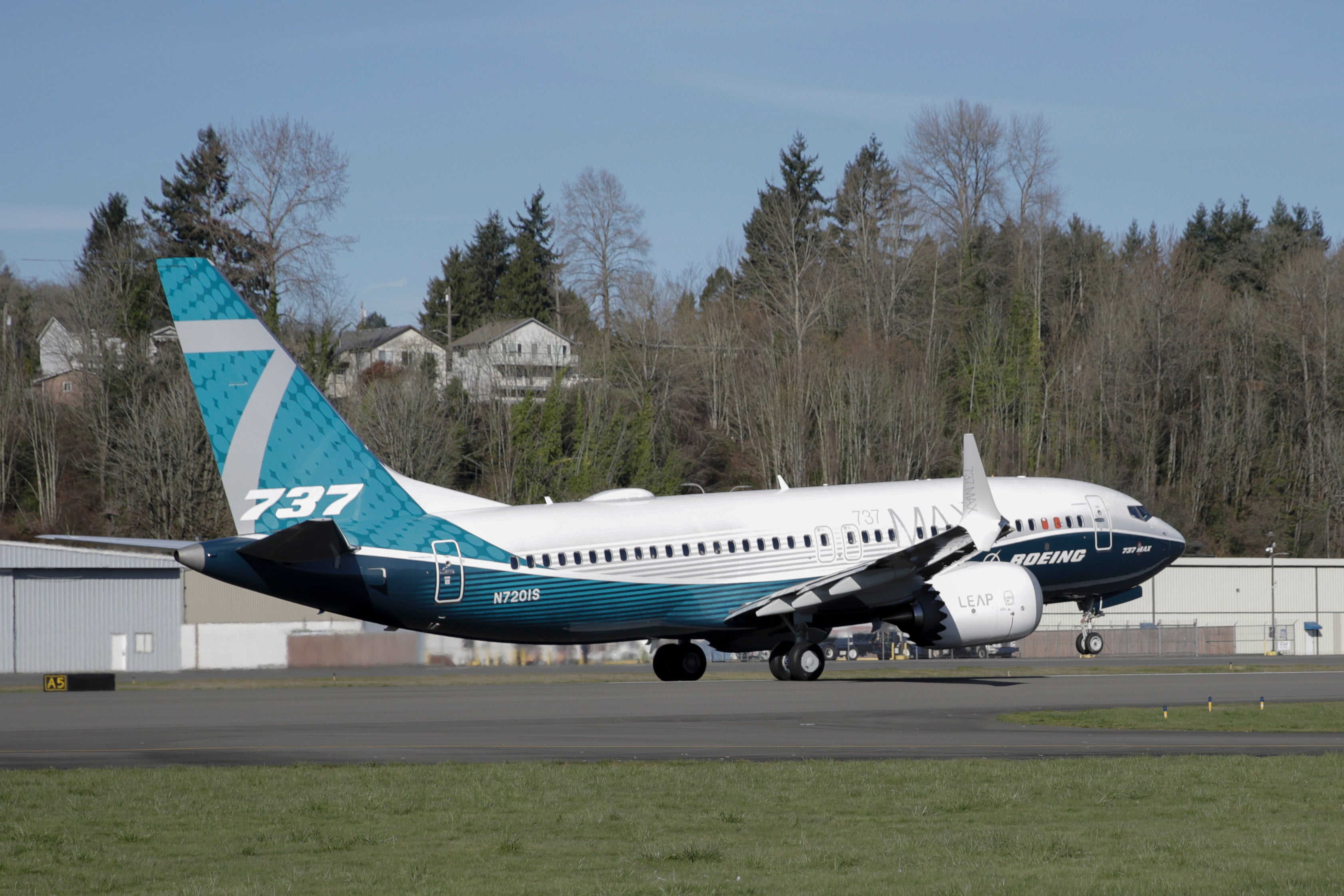Facing scrutiny over quality control, Boeing withdraws request for safety exemption
Boeing says it is withdrawing a request for a safety exemption needed to certify a new model of its 737 Max airliner

Your support helps us to tell the story
From reproductive rights to climate change to Big Tech, The Independent is on the ground when the story is developing. Whether it's investigating the financials of Elon Musk's pro-Trump PAC or producing our latest documentary, 'The A Word', which shines a light on the American women fighting for reproductive rights, we know how important it is to parse out the facts from the messaging.
At such a critical moment in US history, we need reporters on the ground. Your donation allows us to keep sending journalists to speak to both sides of the story.
The Independent is trusted by Americans across the entire political spectrum. And unlike many other quality news outlets, we choose not to lock Americans out of our reporting and analysis with paywalls. We believe quality journalism should be available to everyone, paid for by those who can afford it.
Your support makes all the difference.Facing severe criticism after a door plug blew out on a 737 Max over Oregon this month, Boeing said Monday that it is withdrawing a request for a safety exemption needed to certify a new model of the plane.
The company asked federal regulators late last year to allow it to begin delivering its 737 Max 7 airliner to customers even though it does not meet a safety standard designed to prevent part of the engine housing from overheating and breaking off during flight.
But after a door panel blew out on a different version of the plane — a Max 9 — leaving a gaping hole in the fuselage of an Alaska Airlines flight out of Portland, Oregon, on Jan. 5, the company's quality control and commitment to safety have been questioned.
Last week, Democratic Sens. Maria Cantwell, chair of the Senate Committee on Commerce, Science and Transportation, and Tammy Duckworth, chair of its aviation safety subcommittee, urged the Federal Aviation Administration to deny the request.
Boeing said Monday it would withdraw it.
"We’re committed to being transparent, listening to all our stakeholders and taking action to strengthen safety and quality at Boeing,” the company said in a written statement.
The safety standard concerns an anti-icing system, and the issue affects other models of the 737 Max that are already flying.
Federal officials said last year that Boeing was working to fix the hazard on current Max planes, and in the meantime regulators urged pilots to limit the de-icing system's use in dry conditions because inlets around the engines could get too hot and parts of the housing could break away and strike the plane, possibly breaking windows and causing rapid decompression.
The issue affects only the Max because it has engine inlets made from carbon composite materials rather than metal.
The company had hoped to be able to deliver its new, smaller Max 7 to customers and have pilots operate the model under the guidance given to Max 8 and Max 9 pilots. It asked for an exemption until May 2026 while it worked on a long-term fix.
In its statement, Boeing said that while it believed the exemption request followed “established FAA processes to ensure safe operation,” the company will “instead incorporate an engineering solution that will be completed during the certification process.”
“This is good news,” Cantwell said in an emailed statement Monday night. "I hope this means they can quickly develop a compliant design across other MAX planes.”
The FAA grounded all Max 9s in the U.S. the day after the blowout. Last week the agency approved the inspection and maintenance process to return the planes to flying, and Alaska and United Airlines — the only two U.S. airlines that fly Max 9s — began returning some to service in the last few days.
Southwest Airlines, the main customer for the Max 7, reported last week that it had removed the model from its fleet plans for 2024 while Boeing works with the FAA to certify it.
The FAA said last year that it had not received any reports of the overheating problem happening on Max flights, but that it issued the warning to pilots because of the severity of the risk, which was discovered on a test flight.
The 737 Max went into service in May 2017. Two of the planes crashed in 2018 and 2019, killing 346 people. All Max jets were grounded worldwide for nearly two years while the company made changes to an automated flight-control system that pushed the nose down based on faulty sensor readings.
More recently, Max deliveries have been interrupted to fix manufacturing flaws, and last month the company told airlines to inspect the planes for a possible loose bolt in the rudder-control system.
Boeing Commercial Airplanes president and CEO Stan Deal said in a message to Boeing employees Friday that the company’s most immediate goal is to help airlines restore operations.
“Frankly, we have disappointed and let them down," he wrote. "We are deeply sorry for the significant disruption and frustration for our customers, some of whom have been publicly and unfairly criticized.”